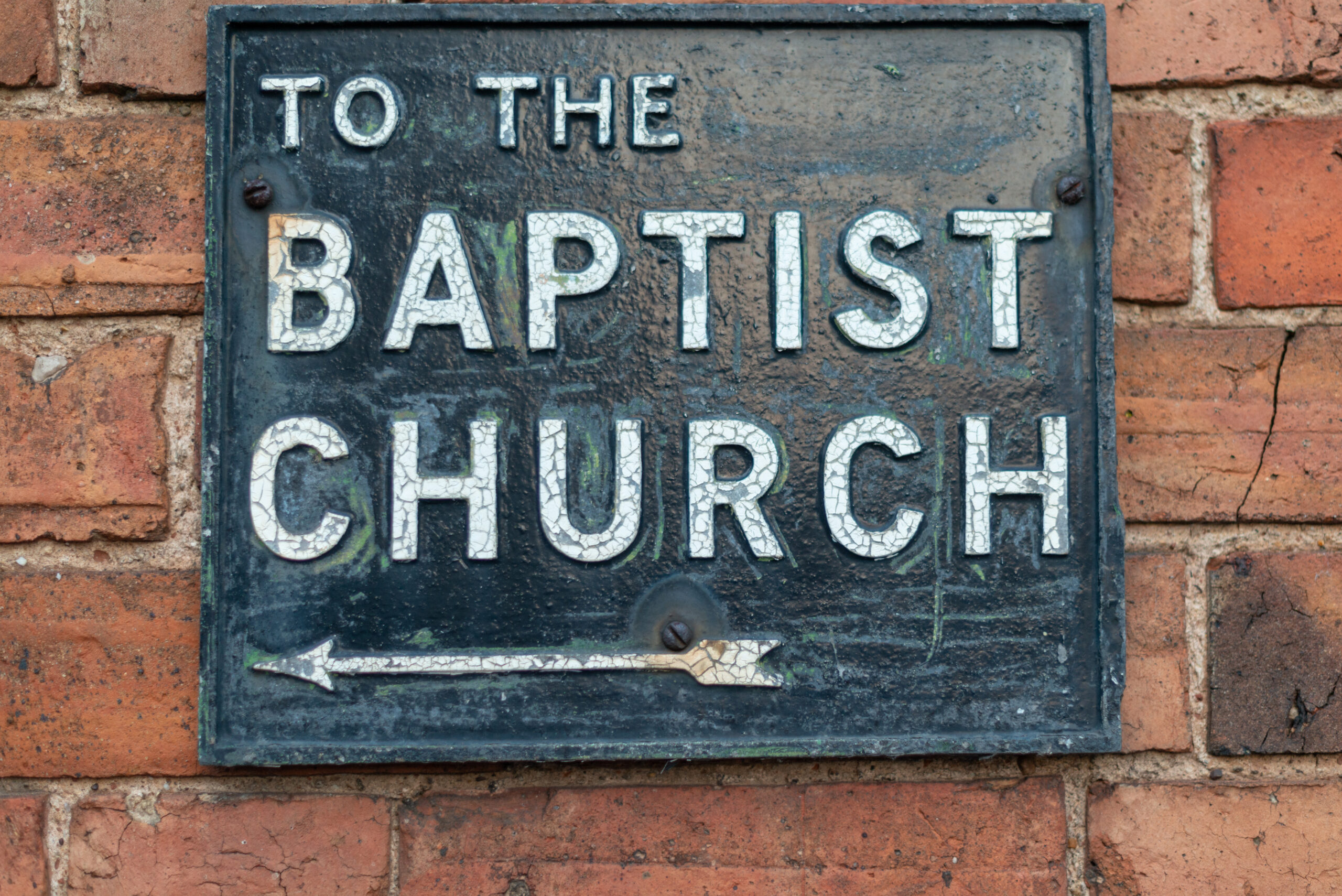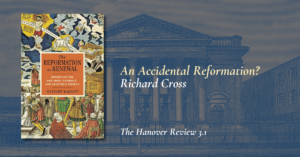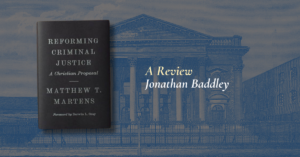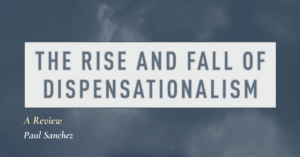Henry Jessey (1601-1663) is one of the those “larger-than-life” figures from the Puritan era that J.I. Packer properly referred to as “God’s Giants.”[1] Born in 1601, Jessey commenced his studies at St. John’s College, Cambridge at the age of 17. This was a time when Cambridge was producing hundreds of godly, Reformed ministers. St. John’s College in particular was known as a “hot-bed” of Puritanism, being the college that produced Richard Sibbes, Peter Bulkeley, John Arrowsmith and many others.[2] In fact, Richard Sibbes was appointed Senior Fellow at St. John’s in 1619,[3] just as Jessey arrived at the school, making it possible that Sibbes’ preaching played no small role in Jessey’s conversion in 1622 at the age of 21. Under the tutelage of Sibbes and others, Jessey set his sights on becoming a minister.[4]
Being ordained in the Church of England in 1627, Jessey worked as a chaplain in Suffolk and later in Aughton in 1633. But like many Puritans of his day, the re-Romanizing of the Church of England under Archbishop Laud proved too much for him. Around this time, Jessey embraced “non-conformity” and was removed from his position for “not using the ceremonies then imposed” and for “the removing of the Crucifix there.”[5] As Jessey wrote candidly on June 12, 1633 to his friend John Winthrop Jr. (son of Governor Winthrop of the Massachusetts Bay Colony), through the “renewing [of] old customs, setting tables altar-wise, genuflections ad nomen Jesus, solemn processions, observing Wednesday and Friday prayers, and other such things… Popery much increaseth!”[6]
Moving to London with his benefactor, Sir Matthew Bointon, in 1635, Jessey planned to move to New England with Bointon and support the ministry there. However, only a month or two after arriving in London “he was earnestly importuned to remove and join himself with that Congregation where Mr. Henry Jacob and Mr. John Lathrop had been Pastors.”[7] This congregation, the famous Jacob-Lathrop-Jessey (“J-L-J”) Church, as it would later become known, had been founded by Henry Jacob in 1616 and was on the cutting edge of the Separatist Puritan movement. They now wanted Henry Jessey to become their new pastor. As Bointon’s move to New England tarried and the J-L-J Church remained insistent, Jessey was ultimately convinced to accept their call and become their pastor “about Midsummer 1637.”[8] He would labor in that congregation for over 25 years until his death in 1663.
Like Richard Sibbes, Jessey never married. Rather, “He chose a single life,” so that “not being encumbered with wife or family he might be the more entirely devoted to his sacred work.”[9] Jessey’s devotion to that “sacred work” was such that he despised “idle talk and fruitless visits,” so much so that he “took all possible methods to avoid them.”[10] He even placed a sign above his study door that said in Latin:
Whatever FRIEND comes hither,
Dispatch in Brief: or go:
Or help me busied too.
A brilliant linguist and scholar, his command of not only Greek and Hebrew, but Chaldean and Syriac was so unparalleled that when the House of Commons in 1652 commissioned a revision of the King James 1611 Bible, they picked Henry Jessey to be one of its nine translators alongside men like John Owen and John Row. For years, Jessey had been critical of the “Episcopalian” biases of the translators of the King James Bible. He once remarked that “had they been as well conscientious in point of fidelity, and godliness, as they were furnished with abilities, they would not have molded it [the KJV] to their own Episcopal notion rendering episkopen, (the office of oversight) by the term Bishoprick (Acts 1:20, etc), as they do in 14 places more.”[11]
After he died he left reams of edits, criticizing things like “when participium paul is translated as if it were Kal” and “When Conjugal Piel is translated as if it were Kal…”[12] This project, which took up much of his life, was tragically never brought to fruition due to the restoration of the monarchy in 1660.[13] Unfortunately, the original folios containing Jessey’s revisions of the KJV have never been discovered.[14]
Another striking feature of Jessey’s life was his tireless work on behalf of Jewish people. Even while Separatists and Baptists faced persecution and opposition in England, Jessey worked to obtain aid and support for displaced Jewish refugees residing in the Holy Land.[15] Not content to provide financial support alone, Jessey wrote a treatise in 1650 entitled, “The glory and salvation of Jehudah and Israel,” outlining fundamental points of agreements between Jews and Christians and arguing on the basis of the Jewish Scriptures and Talmudic traditions that Jesus is the Messiah.[16]
Becoming Baptist
The one event for which Jessey is most remembered today, however, is his change of mind over the issue of baptism in the 1640s. Jessey’s first conviction to change was the mode of baptism.[17] Being a linguist, Jessey became convinced around the year 1642 that immersion or the dipping of the whole body into water best made sense of the Greek, as well as the symbolism of baptism as a burial into Christ’s death and a resurrection from the grave. For the next 2-3 years he continued to baptize children but did so by immersion. Around the year 1644, however, the question of the proper subject of baptism became disputed at the J-L-J Church and after protracted discussions with the elders, Jessey became convinced of believer’s baptism.[18] As Jessey would later write:
Baptisme is an Ordinance of the Lord annexed to the Word of the Covenant; wherein persons repenting, and believing in Jesus Christ, yielding up themselves to him, in his Name, are solemnly dipt in water, and arise; signifying, representing, and sealing up to them, their Union with Christ; and their Communion with him in his Death, and Burial, and Resurrection.[19]
After consulting Goodwin, Nye, Burrows, Craddock, and several other close friends, and finding they could give no satisfactory arguments to the contrary, Jessey was baptized by Hansard Knollys on June 29, 1645.[20]
An Advocate for Religious Liberty
Immediately, Jessey became a strident advocate for the civil liberties of his fellow Baptists. In fact, just one week before his own baptism, he wrote a petition to the churches in New England on June 22, 1645 urging them to put an end to the law banishing anyone from the colony who “should declare their judgment against infant-baptism, either openly or secretly.”[21] In prescient foresight, Jessey pressed the argument that such intolerance of dissenters in New England would undercut the petitions of dissenters back home in England:
With all due and dear respects to you all in the Lord, I give notice, that here it is reported commonly, and use is made of it in the pulpits against the Gathered Churches called Independents, that in New England they will not suffer others to live with them, that differ from them about Church-affairs: and what reason then have such (say these,) to expect that here they should be suffered to set up Churches that differ from our churches.[22]
Jessey’s appeal is reminiscent of what Doug Laycock has called the “the Puritan mistake” of seeking religious freedom for oneself while denying it to others.[23] Over the course of his life, Jessey continued to appeal to his good friend John Winthrop Jr., urging him to wield his influence as the son of the governor to put an end to the discrimination against Baptists and dissenters in New England.[24]
A Patient Reformer
Despite his strong convictions about believer’s baptism, Jessey did not split the church over the question. As his biographer notes, “He always had some in his congregation of the Padobaptist Perswasion, & blamed those that made their particular Opinion about baptism the Boundary of Church Communion.”[25] This has led some to view Jessey as an advocate and practitioner of “open membership.” Others, such as John Bunyan, have looked to Jessey as an example of “open communion”—meaning that unbaptized persons are permitted to the Lord’s Supper of a local church.[26]
It seems that Jessey simply recognized that since believer’s baptism had not been a prerequisite for church membership at the onset, it was imprudent to require existing members to violate their consciences by submitting to what they would consider “re-baptism.” Instead, he patiently preached the truth and waited for the minds of his members to change, just as it had taken years for his own views on the matter to change.[27]
A Faithful Pastor
Shifting from being a church that practiced infant baptism to only practicing believer’s baptism placed the church in a difficult position that required pastoral tact and wisdom. Jessey wisely recognized the uniqueness of the situation, the tenderness of the consciences of his congregants, and the prudence of patiently preaching the truth. In all of this, Jessey proved himself to be a faithful pastor.[28] Indeed, far from being an uncareful ecclesiological thinker, examining just a few of the excerpts of his writings reproduced in Counted Worthy reveals Jessey’s sharp mind careful convictions about the church.
For instance, in his Storehouse of Provision, to further on in several cases of Conscience(1650), Jessey gives a clear defense of congregationalism grounded in Matthew 18:
And where two or three are gathered together in Christs Name, there Christ is present with them, in the midst of them, there is the power and presence of Christ (Matt. 18:18-19). Therefore these may assign such, as they see the Lord hath revealed himself, and his Covenant unto, to open and administer the word of the Covenant, to their edification and consolation: and what less, but that these may as well also administer the outward tokens of the Covenant.[29]
In compact phrasing, Jessey clearly articulates the authority of the congregation to select ministers to administer the ordinances of baptism and the Lord’s Supper. Additionally, Jessey’s posthumously published Miscellana Sacra (1665) reveals similar theological carefulness. (An excerpt has been reproduced at the end of this article.)
A Gospel-Shaped Christian
Despite his accomplishments as a theologian and writer, linguist and translator, pastor and reformer, what was most striking to Jessey’s contemporaries was his godly character. Writing of his friend in 1671, Edward Whiston recalls that Henry Jessey, firstly, “was a man of very quiet and peaceable spirit.” Second, that he was a man of “lowly spirit, esteeming others better than himself.”[30] Third, “he had also a free heart and an open hand in relieving the poor.”[31] Fourth, “he knew the Lord had acquaintance and communion with him in the Spirit by Jesus Christ.”[32] These four areas: peaceable, meek, generous, and intimacy with Jesus, Whiston says, summed up Jessey’s life.
Where did this meekness, this gentleness of spirit, and overflowing generosity come from? It came from Jessey’s own personal encounter with the grace of God in the gospel of Jesus Christ. Writing in 1656, Jessey recounted how he reasoned with his own heart on a daily basis to fight to believe the good news that a sinner like himself could find mercy in Christ:
Question: Why doth the Lord leave such as he loves to be full of sin and corruption?
1. That such should daily confess and aggravate their sins and be kept humble, (1 John 1.8-9, Rom. 7.23-24).2. To be more tender of all others, good and bad, and speak ill of none (Tit. 3:28).
3. To admire God’s grace the more, daily saying before the Lord, not ‘who is so as I?’ but ‘who is a God like to thee, pardoning sin?’ (Mic. 7:18).
4. To exalt Christ more, when we still feel such need of him (1 Tim. 1:15; Rom. 7:23-25).
5. To make us willing to depart home, to be present with the Lord, and sin no more (2 Cor. 5.6; Phil. 1:23) seeing it is so that our sins and corruptions (like the cursed Canaanites) will be our tenant in spite of us, so long as we sojourn here below.
“Therefore,” Jessey continues, “we should be daily the more watchful and looking up to Jesus Christ for help. And withal let us always mind this which the Lord graciously brought me unto after those aforesaid sad days; that confessing and aggravating our sins daily we never end there (as I oft did) to the robbing of God and of Christ of his glory and mine own soul of true joy in the Lord, who is our strength every way (Neh. 8.10) but always… having such good and high thoughts of him that he can both forgive, and is willing to forgive such vile sinners, who desire to return unto him: and not nourishing such ill thoughts that he cannot, or that he is unwilling to pardon such great sinners.”[33]
At the core of Jessey’s labors for the kingdom, study of Scripture, and pastoral ministry was the unavoidable awareness that he was a great sinner and that Jesus Christ is a great Savior. I can only hope that this briefest of encounters with one of “God’s Giants” will encourage readers to learn more about Henry Jessey, and to strive for the same gospel-faithfulness that his life exhibited.
Appendix: An Excerpt from MISCELLANEA SACRA (1665)
Quest. Which are the Tokens of the New Covenant, or New Testament; and for what use are they?
Answ. These Two, are Tokens of the New Covenant ; Namely, Baptisme, and the Lords Supper: They signifie, and represent, and confirme, unto the Believers, his Union and Communion with Jesus Christ in his sufferings on their behalf; and that the Lord, in, and through his Son, will surely perform to him, all the Rich Promises that are in the New Covenant in due season, Rom. 4. 11. Col. 2. 12. Gen. 9. 13. 16. 2 Cor. 1. 20. Gal. 3. 8. 17. 29.
Quest. Should all sorts of bad people be admitted to, or forced unto the Tokens of the Covenant?
Answ. The signs of the Covenant are for them that are in Covenant, else they are made lying signs: They are not appointed to beget Faith, or other Grace; but to confirm it where it is, Gen. 17.7,9, and 3.22,23, with the 3d verse.
Quest. What is Baptisme? and what is to be held out to us by it?
Answ. Baptisme is an Ordinance of the Lord annexed to the Word of the Covenant; wherein persons repenting, and believing in Jesus Christ, yielding up themselves to him, in his Name, are solemnly dipt in water, and arise; signifying, representing, and sealing up to them, their Union with Christ; and their Communion with him in his Death, and Burial, and Resurrection, (and also, their bodily Resurrection, that it shall be) and the Remission, and Washing away of their sins, no longer to live in them, nor to themselves; but as persons raised from Death, and resigned up and engaged wholly to the Name of God the Father, and of the Son, and of the Holy Spirit; and these are to wait and pray for Christs Baptizing them in the Holy Spirit.
Quest. What is the Lords Supper? And what is held out to us thereby?
Answ. The Lords Supper is an Ordinance of the Lord Jesus Christ, left at his departing until his return, as a Love-Token to his Disciples; who are often to meet together in his Name, as One Body; and sitting down at his Table, and Judging themselves, Christs Commission being declared concerning it; they take Bread, and give Thanks, and Break it, and Eat it, as the Communion of Christs Body broken for them; So also the Cup of Blessing, which they Blesse, and all Drink of it, as the Communion of Christs Blood, shed for their sins: After which, they are to Praise the Lord.
Quest. What is a Christian Church?
Answ. A Christian Church is Christs Mistical Body, called out of the World unto Communion with him, and with one another, in all his Holy Ordinances, 1 Cor. 12. 27. And 1,2,9,26. Acts 2. 40,42. Mat. 28.19,20. John 15.14.
[1] Much of what follows is based on the volume of primary sources edited by Jason G. Duesing, Counted Worthy: The Life and Work of Henry Jessey (Borderstone Press, LLC, 2012). For more stories of “God’s Giants” see J. I. Packer, Among God’s Giants: Aspects of Puritan Christianity (Eastbourne [England]: Kingsway Publications, 1991).
[2] See Belden C. Lane, “Two Schools of Desire: Nature and Marriage in Seventeenth-Century Puritanism,” Church History 69, 2 (2000): 372–402.
[3] Mark Dever, Richard Sibbes: Puritanism and Calvinism in Late Elizabethan and Early Stuart England (Macon, GA: Mercer University Press, 2000), 44.
[4] For more on the relationships between non-conforming and conforming Puritans see Francis J. Bremer, Congregational Communion: Clerical Friendship in the Anglo-American Puritan Community, 1610-1692 (UPNE, 1994).
[5] Duesing, 12.
[6] Ibid, 92-93.
[7] Ibid, 12.
[8] Ibid, 13.
[9] Ibid, 83.
[10] Ibid, 71-72.
[11] Ibid, 34-35.
[12] Ibid, 45.
[13] Ibid, 82.
[14] As Michael Kuykendall has written, “His translation was never published, and no manuscript has been discovered to date.” The Quest for a Baptist Bible: The Rise and Demise of the American Bible Union, 1850-1883. Baptist History and Heritage. Vol. 51, No. 2 (Summer 2016). https://www.questia.com/library/journal/1G1-468140926/the-quest-for-a-baptist-bible-the-rise-and-demise.
[15] Ibid, 49-54.
[16] Ibid, 57.
[17] Ibid, 80.
[18] The whole discussion and resolution of this issue is recorded in a manuscript known as An Account of Diverse Conferences, kept in a repository by Benjamin Stinton, the son-in-law of Benjamin Keach. A full transcription of the so-called Stinton Repository with historical introduction is available in Transactions of the Baptist Historical Society 1 (1908-9), 193-245.
[19] Duesing, 198.
[20] Ibid, 81.
[21] Ibid, 131.
[22] Ibid, 130-131.
[23] “The Puritans came to Massachusetts for religious liberty, but only for themselves. So far as they were concerned, adherents of other faiths had the liberty to go anywhere in the world outside Massachusetts, and that was quite enough religious liberty for them” (Douglas Laycock, Anthony R. Picarello Jr, and Robin Fretwell Wilson, Same-Sex Marriage and Religious Liberty: Emerging Conflicts (Rowman & Littlefield Publishers, 2008), 190).
[24] Duesing, 136.
[25] Ibid, 81.
[26] Ibid, 2.
[27] As Steve Weaver writes in a review of Duesing’s dissertation, “Unlike most others who embraced this viewpoint, however, Jessey did not believe that this belief should cause a separation between those who were sprinkled as infants and those immersed as believers. The JLJ church, therefore, became a mixed-congregation with members of both persuasions who were in full fellowship and communion with one another. This naturally resulted in the congregation practicing a mixed-communion at the Lord’s Table. This would be a minority view among the Particular Baptists of the seventeenth century, but Jessey and John Bunyan were among the notable exceptions to the typical restricted communion of their Baptist contemporaries.” (Steve Weaver, Themelios, Vol. 41 – Issue 3. https://www.thegospelcoalition.org/themelios/review/henry-jessey-puritan-chaplain-pastor-millenarian-politician-and-prophet/.
[28] Jason Duesing recognizes as much, writing that examining Jessey’s views shows that “he still held to several restrictions for which he believed could receive both baptism and the Lord’s Supper” (Duesing, 2).
[29] Ibid, 145.
[30] Ibid, 22.
[31] Ibid, 23.
[32] Ibid.
[33] Ibid, 26-27.
Author
-
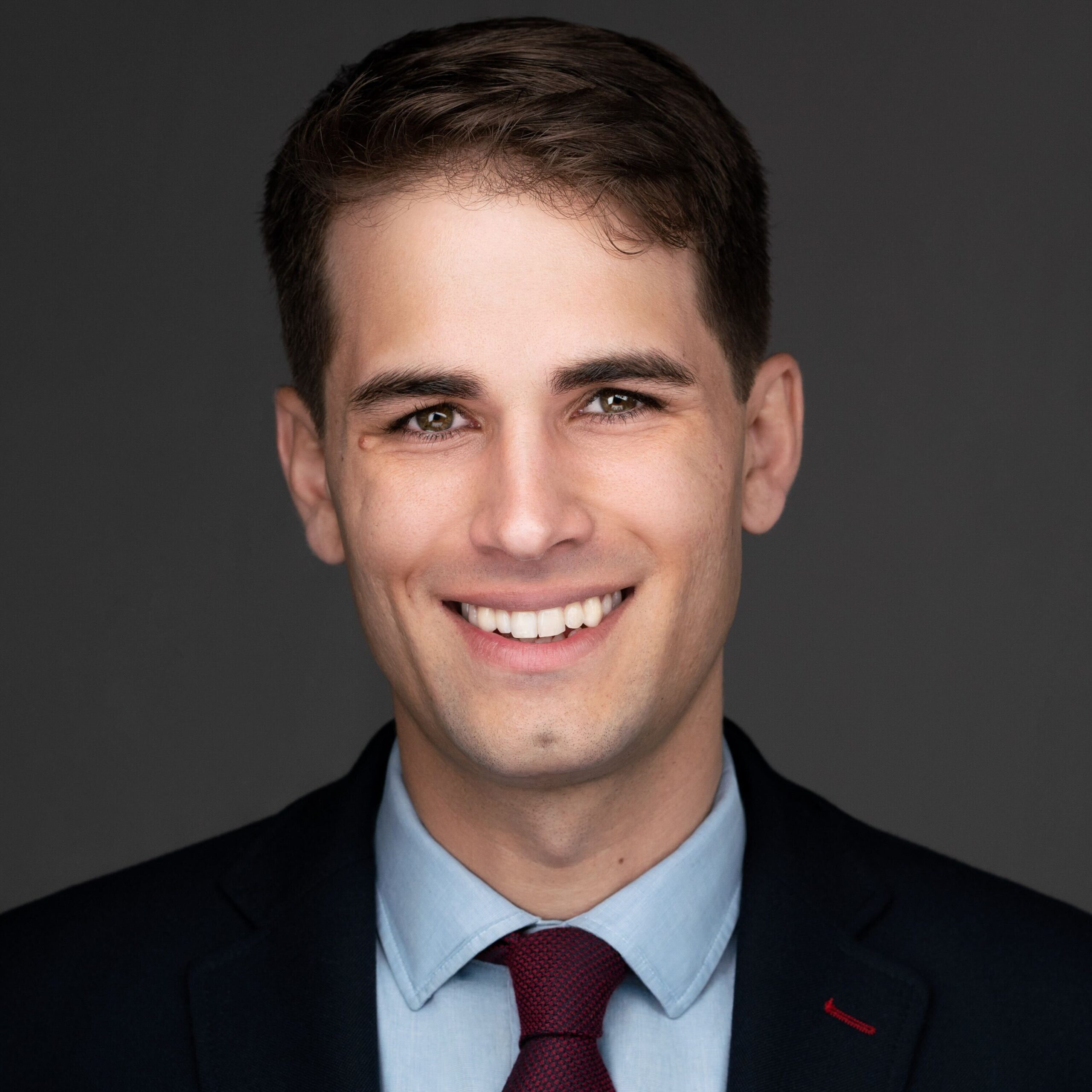
Caleb Morell is a historian and senior pastoral assistant at Capitol Hill Baptist Church in Washington, DC. He graduated magna cum laude from Georgetown University’s School of Foreign Service where he majored in International History and was awarded the Davids Medal for his thesis on the early-English Baptist theological arguments for religious toleration. He completed his Master of Divinity at the Southern Baptist Theological Seminary in Louisville, Kentucky and is currently a doctoral student in historical theology at Midwestern Baptist Theological Seminary in Kansas City, Missouri and an Associate of Newton House, Oxford. His political, theological, and historical writings have appeared at 9Marks, American Reformer, Christ Over All, ERLC, Fairer Disputations, First Things, The Gospel Coalition, Journal of the Evangelical Theological Society, Providence Magazine, SBC Life and World Opinions, and been quoted by The Washington Post. His forthcoming book, A Light on the Hill: The Surprising Story of How a Local Church in the Nation’s Capital Influenced Evangelicalism will be published by Crossway in 2025. He lives with his wife, Clare, and their three children on Capitol Hill.
